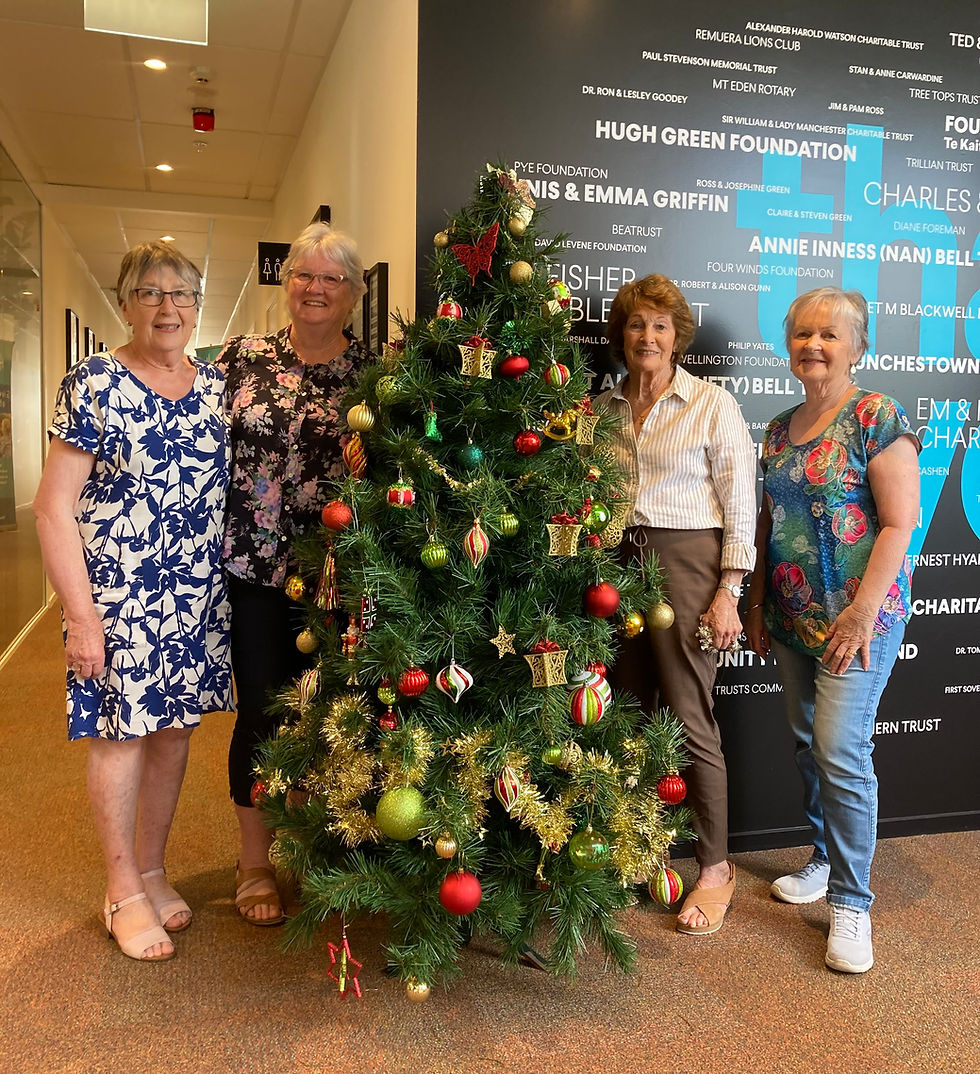Quota International’s support defining for The Hearing House team members
- Jul 31, 2025
- 3 min read
Quota Papakura’s support of The Hearing House over the past quarter of a century has helped create career-defining opportunities for some members of our audiological team.
The club is part of Quota New Zealand which is a non-profit service organisation empowering women and children, the deaf and hard of hearing, and people with speech difficulties in local communities.
The connection was first started in 2000 by The Hearing House’s late patron, Phil Ryall, and his family.
Over the past twenty-five years, Quota members from throughout the upper North Island have worked tirelessly to fundraise for resources and support services, including specialised equipment and books for The Hearing House’s therapy programmes and outreach clinics, a playground for the Joyce Fisher Centre (when the centre was used as an early learning centre) and the fit-out of the Quota Counselling room.
“The Hearing House provides a vital facility for a growing number of families in Auckland and the regions north of Taupō, and we’re delighted to have been supporting their valuable work for so many years,” says Pam Ross, Quota Papakura.
“It’s wonderful that children and adults have the opportunity to access sound through the expertise and dedicated support services that The Hearing House provides, and we feel privileged to play a part in this.”
Auckland Club members have also volunteered on The Hearing House’s sibling support programme, and used to hold annual picnics which gave clients/kiritaki and whānau the opportunity to meet up together and make lasting connections.
Quota Papakura also donates the proceeds from its annual Antiques Fairs to The Hearing House, and each year, members decorate The Hearing House Christmas tree.
Quota Papakura also funds a scholarship and study grant for Masters of Audiology students at the University of Auckland, with many of the students doing their work placement and then moving on to full-time roles at The Hearing House.
Past scholarship and study grant recipients have included lead audiologist Caroline Selvaratnam and audiologists Bri Putnam and Derek Hadfield.
Hearing House CEO Dr Claire Green adds, “The Hearing House couldn’t do what it does without the support of its loyal funders and supporters, including Quota Papakura.
“It’s very special that some of our team members have benefited from the support of Quota Papakura as students, and that their journey has brought them to us.”
Scholarship support integral to defining research
Nearly 30 years ago, Caroline Selvaratham (formerly Caroline Johnstone) received a scholarship which helped launch her research work, and proved to be a defining time in her career trajectory.
“Quota’s support helped cover the costs of my summer placement as I needed to go to Wellington so had costs associated with travel and accommodation that were not funded,” says Caroline.
She says clinical placement was key to her research into the development of the cochlear and, in particular, looking at a feature called apoptosis (cell death) and how it culled unwanted cells within the inner ear during ear development.
“My thesis was the first to look at this issue so at the time, I was tracking what was normal,” she says.
“Later, students used this as a base line to determine what happens when ear development is not normal, or when hearing cells are affected by trauma. This then led to looking at ways of protecting the cochlear from damage.”
“I’m forever grateful to Quota for the support they gave me.”
Hearing House audiologist Bri Putnam received a Master of Audiology scholarship from Quota six years ago.
“It helped ease the financial pressure of being a student and helped me focus on pursuing research with the aim to further bridge the gap between the Deaf community and the medical field,” says Bri.
“My research was completed under Deaf supervision and published in the New Zealand Medical Journal, to allow those within the medical field to hopefully see how much has changed in the last decade, and what we still have to learn.
“It has helped me immensely in my work as a cochlear implant audiologist, seeing a more balanced approach to cochlear implants and sign language/Deaf culture as valid and important options to be considered for deaf/hard-of-hearing children,” she says.






















Comments